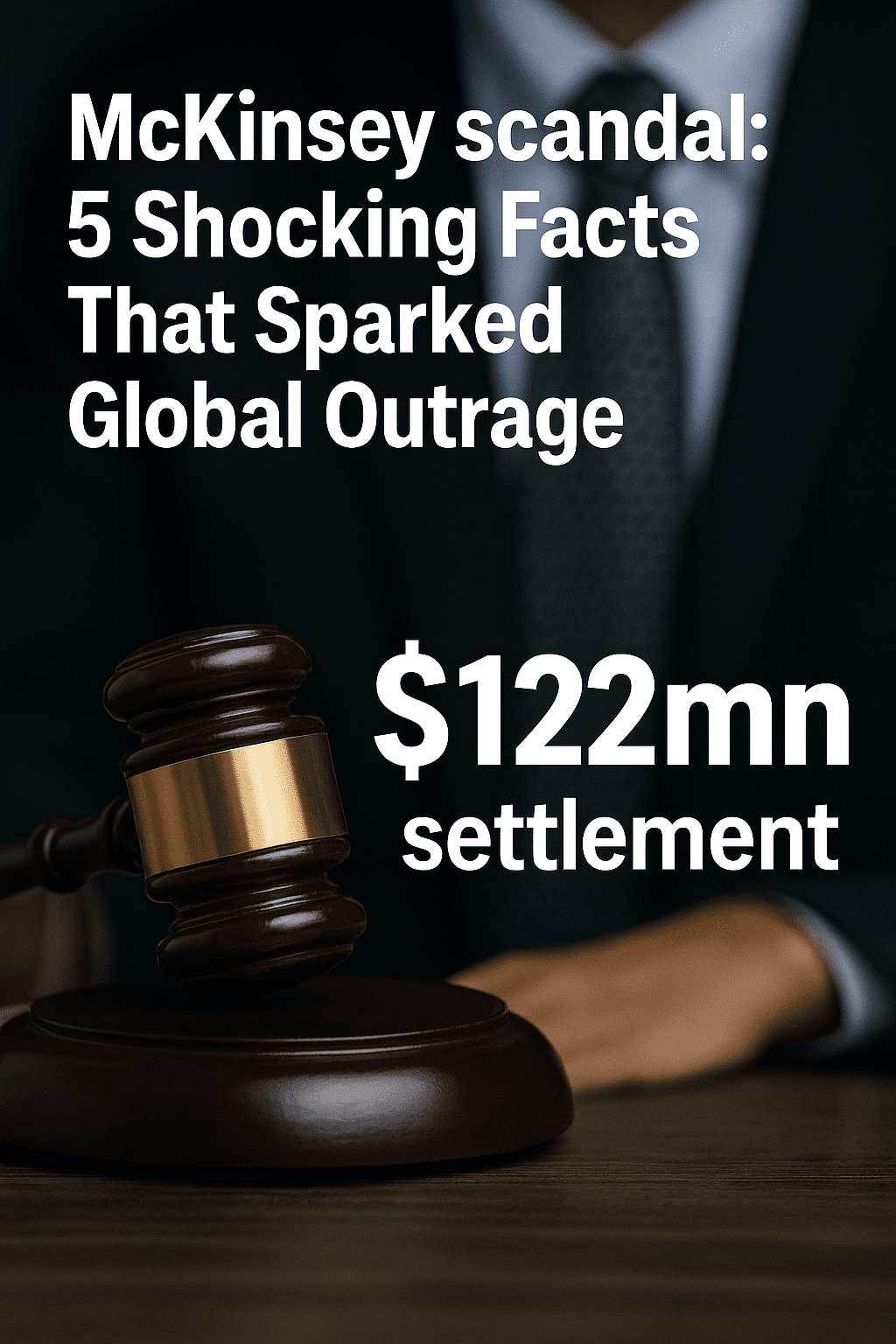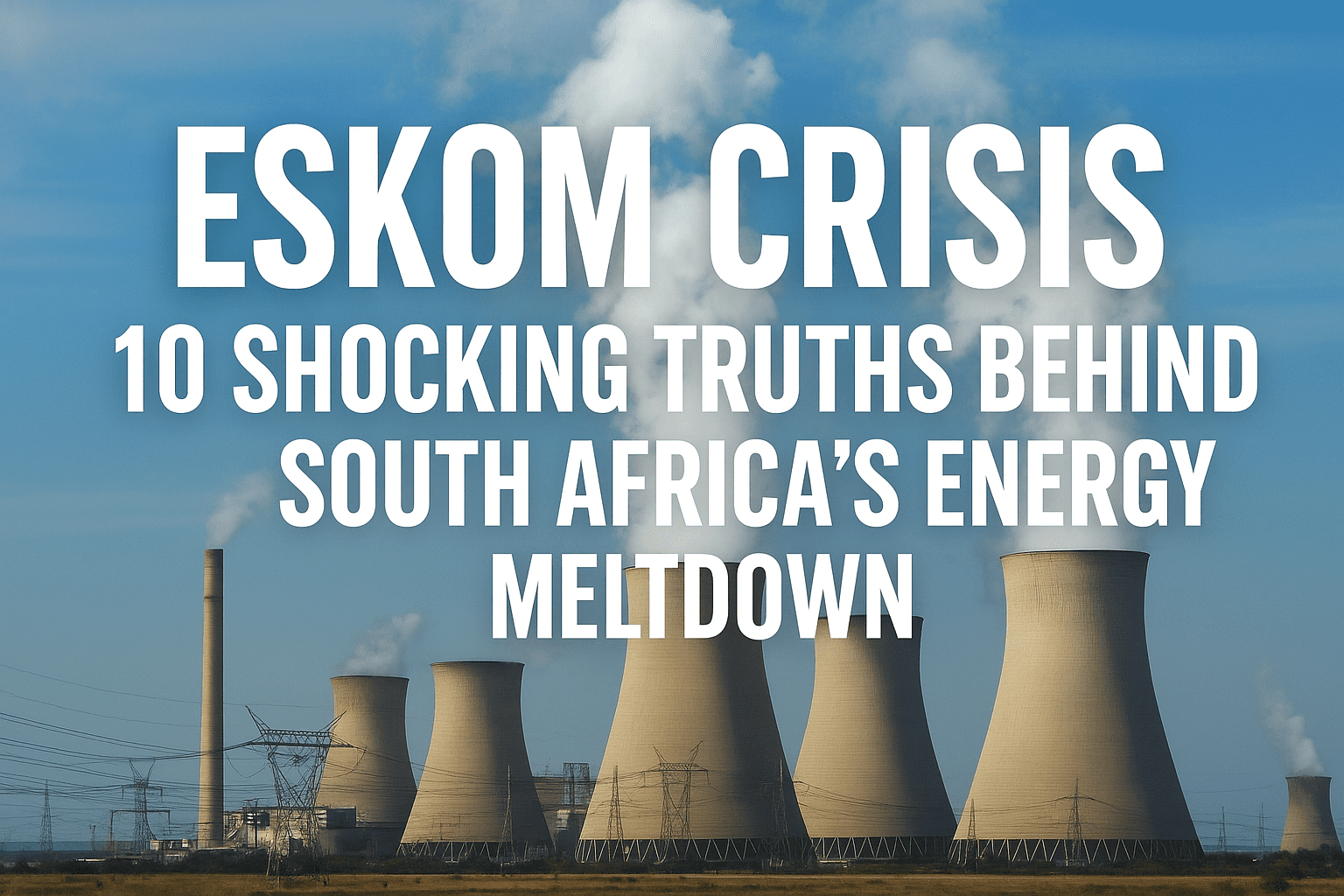McKinsey scandal: 5 Shocking Facts That Sparked Global Outrage
The McKinsey scandal has become one of the most controversial corporate stories in recent years. With a $122 million bribery settlement in South Africa, the case sparked international outrage and opened the door for debates about corruption, corporate ethics, and accountability. This article dives deep into the hidden truths and shocking details behind the scandal, offering a comprehensive look at why it continues to dominate global headlines.
1. The $122mn Settlement That Shocked South Africa
At the heart of the McKinsey scandal lies a staggering $122 million settlement linked to bribery and questionable practices in South Africa. For many citizens, this was not just another corporate case—it was a symbol of how corruption erodes public trust and undermines economic stability. The outrage was further fueled by the perception that wealthy corporations can “buy their way out” of justice without facing meaningful accountability.
2. How the McKinsey Scandal Damaged Public Trust
Trust in institutions is one of the most valuable assets in any democracy. Unfortunately, the McKinsey scandal delivered a heavy blow to South Africa’s ongoing battle against systemic corruption. Citizens began questioning whether large multinationals operate with integrity, or whether profit always comes before principle. According to a BBC report, public anger was amplified by the slow pace of investigations and the lack of transparency.
3. A Global Wake-Up Call on Corporate Ethics
The McKinsey scandal is more than a South African story—it is a global reminder of how fragile corporate ethics can be. Across industries, companies are being pressured to strengthen compliance systems, prioritize transparency, and act responsibly. Businesses that ignore these lessons risk damaging their reputation and losing consumer confidence. On our site, we’ve previously discussed corporate governance best practices and why ethical frameworks matter more than ever.
4. The Role of State-Owned Enterprises
One of the most alarming aspects of the McKinsey scandal is how state-owned enterprises became entangled in the process. Reports suggest that government-linked companies were manipulated, raising serious concerns about governance and oversight. This entanglement created ripple effects across the economy, undermining investor confidence and slowing down much-needed reforms. Citizens were left asking: if billion-dollar deals are tainted by corruption, how can public resources ever be managed responsibly?
5. Legal Consequences and Their Limitations
While the $122mn settlement represents a significant financial penalty, critics argue that it fails to fully address the ethical breach at the core of the McKinsey scandal. Legal experts emphasize that financial settlements often protect corporations from deeper accountability, while individuals responsible rarely face jail time. This imbalance between corporate liability and personal responsibility leaves many questioning the fairness of global legal systems when dealing with powerful multinational firms.
6. Why This Case Matters Beyond South Africa
The McKinsey scandal is not just about one company or one country—it is a case study for the global business community. From New York to London, investors are watching closely, recognizing that corruption scandals can destabilize markets far beyond national borders. International watchdogs have also flagged this case as an urgent reminder that corporate ethics must be enforced consistently. Without systemic change, similar scandals will likely continue to emerge.
7. The Impact on McKinsey’s Global Reputation
Reputation is one of the most valuable currencies for consulting firms. The McKinsey scandal has left a permanent mark on the company’s global image, casting doubt on its credibility and professional ethics. Clients in both public and private sectors began to question whether they could trust McKinsey’s advice, particularly when dealing with sensitive issues like governance, risk management, and financial restructuring.
8. Lessons for Corporate Leadership
For CEOs and executives worldwide, the McKinsey scandal offers powerful lessons about the dangers of ignoring compliance and oversight. Boards are now urged to implement stronger auditing practices and embrace transparency as a non-negotiable principle. Failure to do so could lead to scandals that not only damage brand equity but also invite stricter government regulation, adding unnecessary costs and reputational risks to businesses.
9. Public Outrage as a Driver of Change
One of the most striking elements of the McKinsey scandal is how public outrage fueled the debate around accountability. Citizens, civil society groups, and the media united in demanding justice, proving that collective pressure can force even the largest corporations to respond. This wave of activism is a reminder that ethical business is not just about profits—it is also about social responsibility and building trust with stakeholders.
10. A Call for Stronger Global Regulations
If anything, the McKinsey scandal underscores the urgent need for stronger global regulations on corporate misconduct. Experts argue that without consistent international standards, large firms can exploit legal loopholes and continue harmful practices. Aligning legal frameworks across countries would make it harder for corporations to avoid accountability and would protect citizens from the devastating effects of corruption.
Conclusion
The McKinsey scandal is more than just a $122mn bribery settlement—it is a wake-up call for governments, corporations, and citizens around the world. It proves that corruption, if left unchecked, can undermine trust, slow down development, and destabilize entire economies. By learning from this case, society has a chance to push for stronger accountability, ethical leadership, and more transparent business practices. Only then can scandals like this become a thing of the past.



